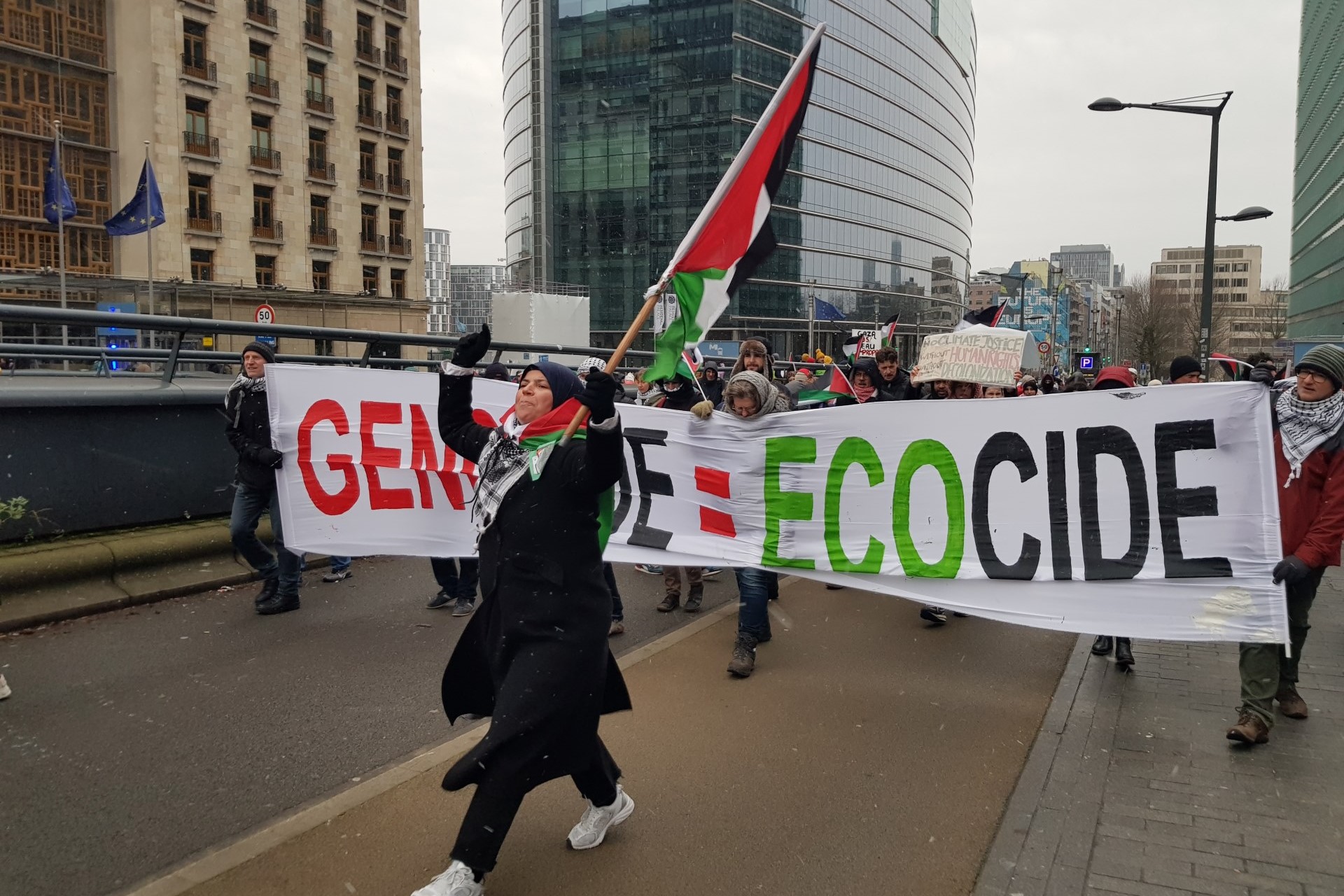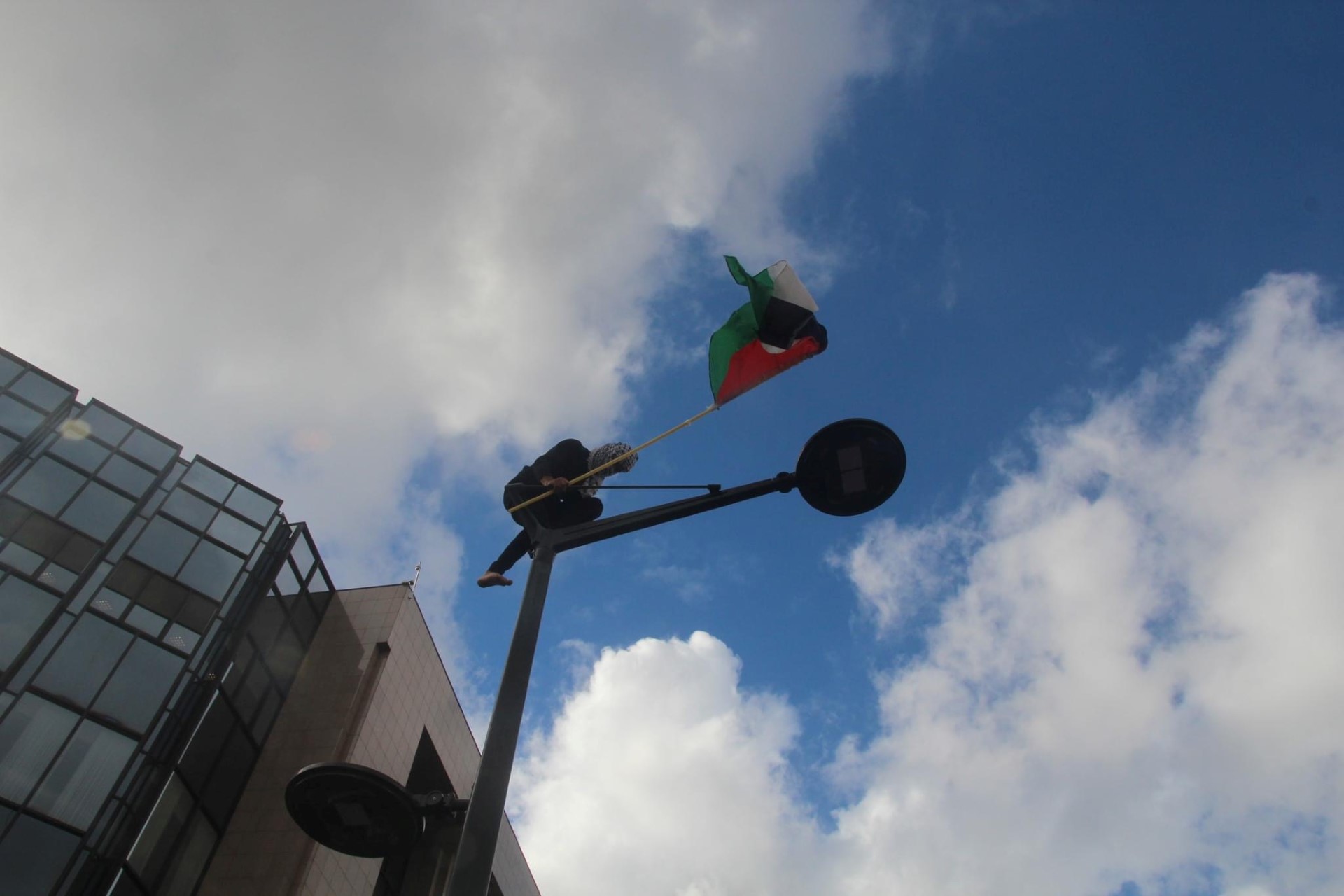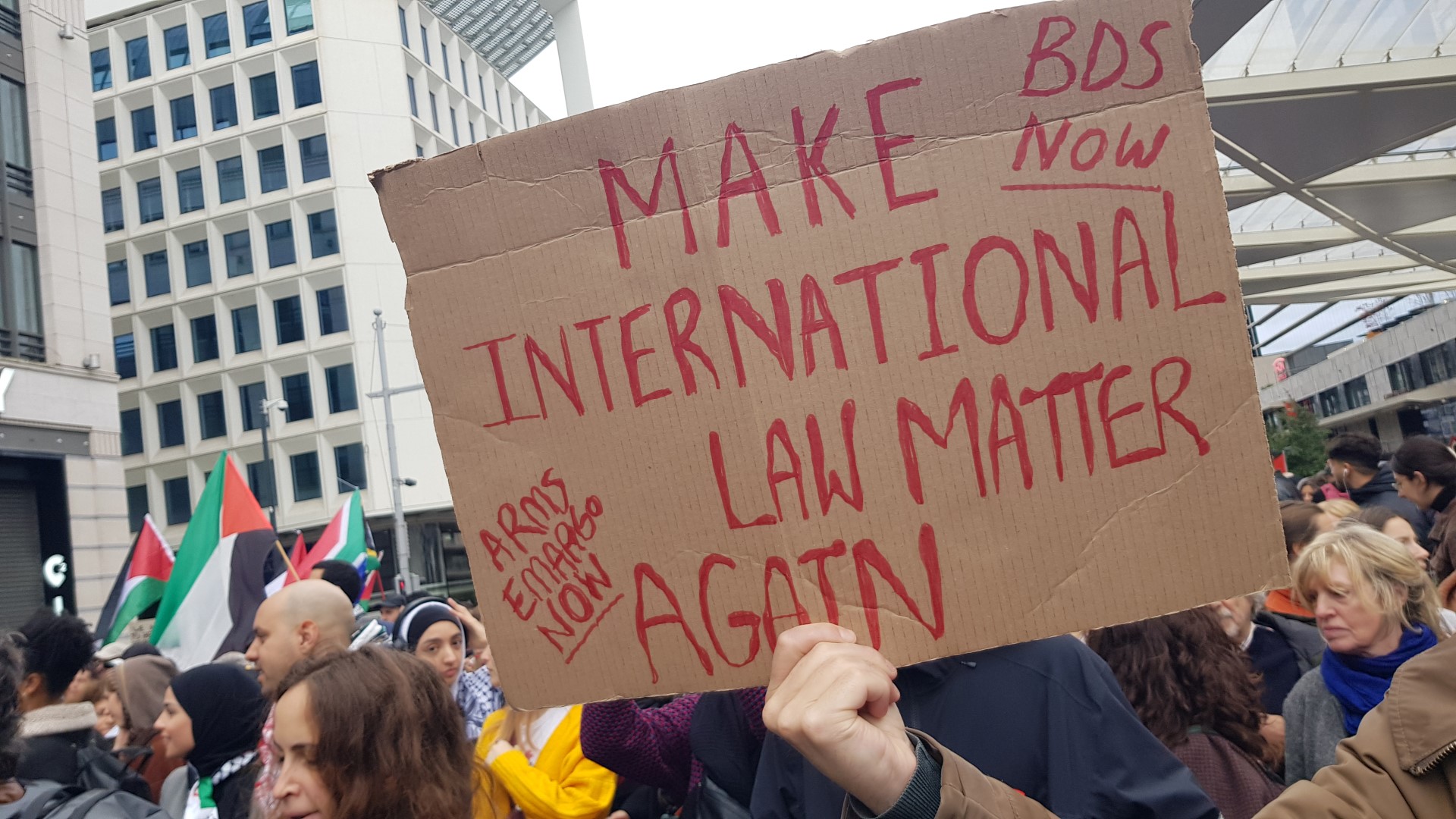Addressing Ecocide, Genocide, and International Justice
ICC at a turning point on Israel’s crimes in Gaza.
The destruction of Gaza is not just a humanitarian crisis – it’s a catastrophe of both genocide and ecocide. For over a year, the people of Palestine have endured immense suffering, while Gaza’s natural environment – its water sources, soil, air, and agriculture—has been systematically devastated.
The deliberate use of severe, widespread, and long-lasting environmental harm, also known as ecocide, has become a weapon of war.
The deliberate use of severe, widespread, and long-lasting environmental harm, also known as ecocide, has become a weapon of war.
This strategy weaponizes nature to make life in Gaza impossible, and it constitutes a crime under international law. If the International Criminal Court (ICC) wants to uphold its credibility, it must act now against the perpetrators of these crimes; the world is watching.
Severe, Widespread, Long-term Environmental Damage
Gaza’s environment has been devastated: toxic chemicals from bombs have poisoned the soil, and thousands of buildings have collapsed, creating massive waste and debris. Former agricultural lands, such as olive groves, are now destroyed. Rainwater mixed with white phosphorus has poisoned surface water and soil not only in Gaza, but also in south Lebanon, and Gaza’s water crisis deepens as 85% of its water infrastructure has been destroyed.
The Israeli military’s use of seawater to flood tunnels has salinized groundwater, affecting 97% of Gaza’s drinking water.

Nada Majdalani, from EcoPeace Middle East, and Abeer al-Butmeh from the Palestinian Environmental Organizations Network (Pengon) both highlight the irreversible damage to Gaza’s ecosystem. Farah Al Hattab from Greenpeace doubts whether Gaza will ever be habitable again. Lucia Rebolino of Forensic Architecture said to The New Arab newspaper that “the destruction of land is a systematic genocidal practice in the same way as the destruction of food production, schools, and hospitals, which is well documented in situ.”
Ecocide as a Violation of Human Rights
The destruction of Gaza’s environment violates the human right to a clean, healthy, and sustainable environment. UN Special Rapporteur Astrid Puentes stresses this point, while human rights expert Kate Mackintosh calls for ecocide to be recognized as a stand-alone crime under the Rome Statute.
The destruction of Gaza’s environment violates the human right to a clean, healthy, and sustainable environment.
UN Secretary-General António Guterres writes in his Report on the protection of civilians in armed conflict that stricter accountability for environmental damage resulting from armed conflicts requires greater attention from international and national courts.
Ecocide as a War Crime
Under Article 8(2)(b)(iv) of the Rome Statute, “intentionally launching an attack knowing that such attack will cause […] widespread, long-term, and severe damage to the natural environment, which would be clearly excessive in relation to the concrete and direct overall military advantage anticipated” is a war crime.

Multiple legal experts, including Samira Homerang Saunder from the Centre for Climate Crime and Climate Justice at Queen Mary University of London, and Saeed Bagheri, lecturer in international law at Reading University, argue that Gaza’s destruction meets these criteria. Also, Gill H. Boehringer, from Macquarie University Law School, Sydney, says that Israel’s actions in Gaza “surely qualify as a violation of the Rome Statute.”
Yet, despite these clear violations, the ICC has been slow to act.
The Growing Pressure on the ICC
On 30 October 2023, Karim Khan, Chief Prosecutor of the ICC, stated: “It’s in times like this that we need the law more than ever. Not the law in abstract terms, but the law in action.” However, despite Khan’s calls for arrest warrants in May 2024 against Israeli leaders and Hamas commanders for war crimes, the Court has yet to decide on whether to accept the request and act decisively. This delay weakens the ICC’s credibility as it fails to deliver justice.

Additionally, despite mounting evidence of severe environmental damage as a weapon of war, the ICC has failed to include ecocide in its charges. This omission raises questions about the Court’s commitment to addressing environmental warfare.
As the Assembly of States Parties convenes in December 2024 in The Hague, the ICC faces a defining moment. Accountability is not only crucial for the people of Palestine and the environment but also for the future of international justice. The world is watching, and the ICC’s next steps will determine whether it remains a relevant force in upholding the rule of law.